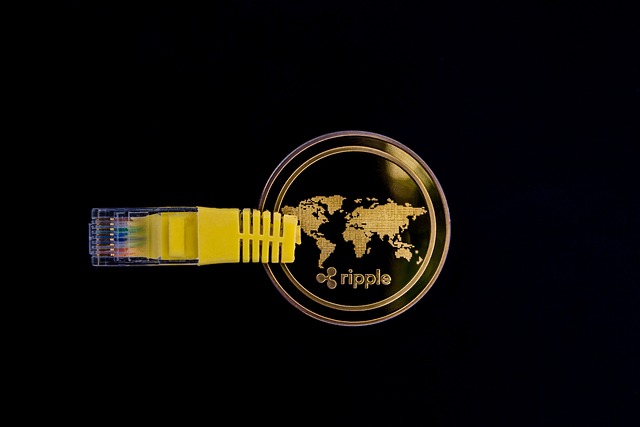The Meaning Behind Decentralized Finance Companies
The Meaning Behind Decentralized Finance Companies

What is Decentralized Finance?
Decentralized Finance, also known as DeFi, is a revolutionary concept that is transforming the financial landscape. Unlike traditional finance, which relies on centralized intermediaries like banks and governments, DeFi operates on blockchain technology, allowing individuals to interact directly with financial services. In simpler terms, it is a system that enables anyone with an internet connection to access a wide range of financial products and services without the need for a middleman.
The core essence of DeFi lies in its openness and transparency. Instead of relying on centralized authorities to validate transactions, DeFi protocols utilize smart contracts, which are self-executing agreements written on the blockchain. This decentralized approach ensures that the rules and operations of financial transactions are predetermined and cannot be manipulated. Additionally, DeFi allows users to retain full control of their assets, eliminating the need for intermediaries to hold or manage their funds. As a result, individuals have greater autonomy and can participate in financial activities with a level of trust and security that was previously unimaginable.
Why is Decentralized Finance gaining popularity?
Decentralized Finance, also known as DeFi, is rapidly gaining popularity among individuals and businesses alike. One of the key reasons behind its rising popularity is the fact that it provides a more accessible and inclusive financial system. Unlike traditional finance, where access to financial services is often limited by geographical boundaries and institutional gatekeepers, DeFi allows anyone with an internet connection to participate. This means that individuals in underserved regions, who may not have access to traditional banking services, can now engage in various financial activities such as lending, borrowing, and trading on a global scale.
Another factor driving the popularity of DeFi is its potential for financial innovation. Traditional financial systems are often burdened by significant bureaucracy, lengthy processes, and high fees. On the other hand, DeFi leverages cutting-edge blockchain technology, enabling automated smart contracts and eliminating the need for intermediaries. This streamlined approach not only reduces costs but also increases the speed and efficiency of transactions. Moreover, DeFi fosters creativity and experimentation, as developers can build and launch new financial applications and services without extensive regulatory hurdles. This level of innovation and flexibility attracts not only individual users but also entrepreneurs and investors who are looking for alternative and potentially more profitable investment opportunities.
Key principles of Decentralized Finance
Decentralized Finance (DeFi) operates on several key principles that set it apart from traditional financial systems. One of these principles is the elimination of intermediaries, such as banks or financial institutions. Instead, transactions are conducted directly between individual users using smart contracts. This allows for greater transparency and trust in the system, as all transactions are recorded on the blockchain and can be verified by anyone.
Another important principle of DeFi is the concept of open access. Unlike traditional finance, which often excludes large segments of the population due to high entry barriers, DeFi aims to provide financial services to anyone with an internet connection. This inclusivity is made possible through the use of blockchain technology, which removes the need for costly infrastructure and allows for global accessibility. As a result, individuals who were previously excluded from traditional financial systems can now participate in a wide range of financial activities, such as lending, borrowing, and investing.
• Elimination of intermediaries, such as banks or financial institutions
• Transactions conducted directly between individual users using smart contracts
• Greater transparency and trust in the system due to all transactions being recorded on the blockchain and verifiable by anyone.
• Open access concept allows for financial services to be provided to anyone with an internet connection.
• Inclusivity made possible through the use of blockchain technology, removing costly infrastructure and allowing for global accessibility.
• Previously excluded individuals can now participate in lending, borrowing, and investing activities.
How do Decentralized Finance companies operate?
Decentralized Finance (DeFi) companies, operating on blockchain technology, have redefined the traditional financial landscape by introducing a new philosophy of financial operations. Unlike traditional financial institutions, DeFi companies do not rely on intermediaries such as banks or other third-party entities. Instead, they operate on open-source protocols and smart contracts which automate financial transactions, removing the need for trust in a centralized authority.
DeFi companies leverage the power of blockchain technology to provide users with a range of financial services, such as lending, borrowing, trading, and asset management. These services are available to anyone with an internet connection, without the need for extensive documentation or approval processes that are often associated with traditional financial institutions. Operating in a decentralized manner, DeFi companies give users full control over their assets, providing transparent and auditable transactions on the blockchain.

Through their operations, DeFi companies enable individuals to access financial services without the limitations imposed by geographical boundaries, bureaucratic processes, or restrictive regulations. They unlock financial inclusivity by offering a level playing field for users worldwide to participate in various financial activities while maintaining ownership and control of their assets. Furthermore, as decentralized systems, DeFi companies foster innovation by encouraging developers to build interoperable applications on their platforms, allowing for the seamless integration of different financial products and services.
In the next section, we will explore the advantages offered by Decentralized Finance companies and how they have been driving the widespread adoption of this new paradigm in the financial industry.
Advantages of Decentralized Finance companies
Decentralized Finance companies offer several advantages that have contributed to their growing popularity in recent years. Firstly, one of the key benefits is the increased accessibility they provide. Unlike traditional financial institutions, decentralized finance platforms can be accessed by anyone with an internet connection, regardless of their location or socioeconomic status. This inclusivity opens up a world of opportunities for individuals who were previously excluded from the traditional financial system.
Secondly, decentralized finance companies are known for their transparency. The use of blockchain technology ensures that all transactions and operations are recorded on a public ledger, which can be accessed and verified by anyone. This eliminates the need for intermediaries and minimizes the risks of fraud or manipulation. By operating on a decentralized network, these companies foster trust and accountability, enhancing the overall security of the financial ecosystem.
Challenges faced by Decentralized Finance companies
Decentralized Finance companies face several challenges in their pursuit to revolutionize the financial industry. One prominent challenge is scalability. As the popularity of decentralized protocols and applications continues to soar, the existing blockchain networks struggle to handle the increasing number of transactions. This results in network congestion and slower transaction times, causing inconvenience and frustration among users. To address this challenge, developers are exploring various solutions such as layer 2 protocols and sharding techniques to enhance scalability and ensure a smoother user experience.
Moreover, security remains a significant concern for Decentralized Finance companies. While blockchain technology is inherently secure, vulnerabilities can still emerge through smart contract bugs, hacking attempts, or phishing attacks. The transparent nature of decentralized systems attracts both legitimate users and malicious actors, making it crucial for companies to invest in robust security measures. Regular audits, rigorous code reviews, and an active community of developers constantly monitoring the ecosystem are crucial in minimizing security risks. Balancing security and accessibility is an ongoing challenge that Decentralized Finance companies must navigate effectively to build trust and attract a wider audience.
Examples of successful Decentralized Finance companies
Aave: Aave is a popular decentralized finance company that aims to revolutionize the lending and borrowing industry.

Uniswap: Uniswap is a decentralized exchange protocol that enables users to trade a wide range of cryptocurrencies directly from their wallets. Unlike traditional exchanges, Uniswap operates on a peer-to-peer basis, eliminating the need for intermediaries and providing users with full control over their funds. Powered by automated market-making algorithms, Uniswap ensures liquidity for its users by incentivizing liquidity providers with trading fees.

The role of blockchain technology in Decentralized Finance companies
Blockchain technology plays a crucial role in powering decentralized finance companies. By utilizing a distributed ledger system, blockchain enables these companies to operate autonomously and securely without the need for intermediaries. This technology acts as a transparent and tamper-proof record of all transactions, ensuring that all parties involved can trust the information being exchanged. Additionally, blockchain technology allows for the seamless integration of smart contracts, which are self-executing agreements with predefined rules and conditions. These smart contracts enable decentralized finance companies to automate various processes, reducing the need for human intervention and minimizing the potential for errors or fraud. Overall, blockchain technology serves as the backbone of decentralized finance, empowering companies to provide innovative financial services while maintaining trust and transparency.
Moreover, the decentralized nature of blockchain technology gives individuals more control over their financial assets and data. Decentralized finance companies leverage blockchain to eliminate the need for a central authority, enabling users to have complete ownership and control of their funds. This not only enhances transparency but also increases accessibility, as individuals from all over the world can participate in decentralized finance activities without any restrictions. Furthermore, the use of blockchain technology ensures that all transactions are recorded and cannot be altered, adding an additional layer of security to the decentralized finance ecosystem. The decentralized nature of blockchain technology is a key driver behind the rising popularity and adoption of decentralized finance companies, as it aligns with the principles of trust, autonomy, and empowerment that users seek in the financial world.
The potential impact of Decentralized Finance on traditional financial institutions
Traditional financial institutions have long held a dominant position in the global economy. Their centralized structure, accompanied by complex regulations and intermediaries, has shaped the landscape of finance for centuries. However, the rise of Decentralized Finance (DeFi) is posing a potential challenge to these traditional players.
DeFi, powered by blockchain technology, offers a decentralized alternative to the conventional financial system. By eliminating intermediaries and allowing peer-to-peer transactions, DeFi is providing greater financial inclusivity and reducing barriers to entry. This disruptive model has the potential to revolutionize the way financial services are provided, ultimately impacting traditional financial institutions. As more individuals and businesses adopt DeFi solutions, traditional banks and financial intermediaries may find themselves having to adapt or risk becoming obsolete in this new era of decentralized finance.
Future prospects and developments in the Decentralized Finance industry
The future holds promising prospects for the Decentralized Finance (DeFi) industry, as it continues to gain traction and disrupt traditional financial systems. One aspect that is expected to drive developments in the DeFi space is the increased adoption of blockchain technology. With blockchain providing the foundation for decentralized systems, it enables transparent, secure, and efficient transactions, which are vital for the success of DeFi companies. As advancements in blockchain technology continue to evolve, we can anticipate enhancements in scalability and interoperability, leading to improved user experiences and expanded use cases for DeFi applications.
Additionally, the growing interest from institutional investors and traditional financial institutions is another factor that will shape the future of the DeFi industry. As more traditional players recognize the potential of DeFi to revolutionize financial services, we can anticipate collaborations and partnerships between DeFi companies and established institutions. This influx of expertise and resources can contribute to the development of more sophisticated DeFi solutions, addressing challenges such as regulatory compliance and scalability. Furthermore, with the integration of decentralized financial applications into existing financial infrastructure, we may witness a more seamless and inclusive financial ecosystem, accessible to a wider range of users.
What is Decentralized Finance?
Decentralized Finance, also known as DeFi, refers to the use of blockchain technology and cryptocurrencies to recreate traditional financial systems in a decentralized manner.
Why is Decentralized Finance gaining popularity?
Decentralized Finance is gaining popularity because it offers various advantages such as increased financial inclusivity, transparency, and the potential for higher returns on investments.
What are the key principles of Decentralized Finance?
The key principles of Decentralized Finance include open access, transparency, censorship resistance, and the elimination of intermediaries.
How do Decentralized Finance companies operate?
Decentralized Finance companies operate through smart contracts, which are self-executing agreements on the blockchain. These contracts automate transactions and remove the need for intermediaries.
What are the advantages of Decentralized Finance companies?
Some advantages of Decentralized Finance companies include lower fees, faster transactions, increased privacy, and the ability to access financial services without needing a traditional bank account.
What challenges do Decentralized Finance companies face?
Decentralized Finance companies face challenges such as scalability issues, regulatory uncertainties, security concerns, and the need for user education on how to navigate this new financial landscape.
Can you provide examples of successful Decentralized Finance companies?
Sure! Examples of successful Decentralized Finance companies include MakerDAO, Compound Finance, Uniswap, and Aave.
What role does blockchain technology play in Decentralized Finance companies?
Blockchain technology plays a crucial role in Decentralized Finance companies as it enables secure and transparent transactions, eliminates the need for intermediaries, and ensures the integrity of financial data.
How could Decentralized Finance impact traditional financial institutions?
Decentralized Finance has the potential to disrupt traditional financial institutions by offering alternative financial services that are faster, more accessible, and more efficient. This could lead to a shift in power and a need for traditional institutions to adapt to the changing landscape.
What are the future prospects and developments in the Decentralized Finance industry?
The future prospects of the Decentralized Finance industry are promising. We can expect to see advancements in interoperability between different DeFi protocols, improved user interfaces, increased adoption of stablecoins, and the integration of real-world assets into DeFi platforms.
Todays Featured Product:
Buy, exchange and grow your crypto securely with a Ledger hardware wallet, combined with the Ledger Live app. It’s never been easier to keep your crypto safe and accessible. Buy direct from Ledger.com and get todays Special Offers Here.




